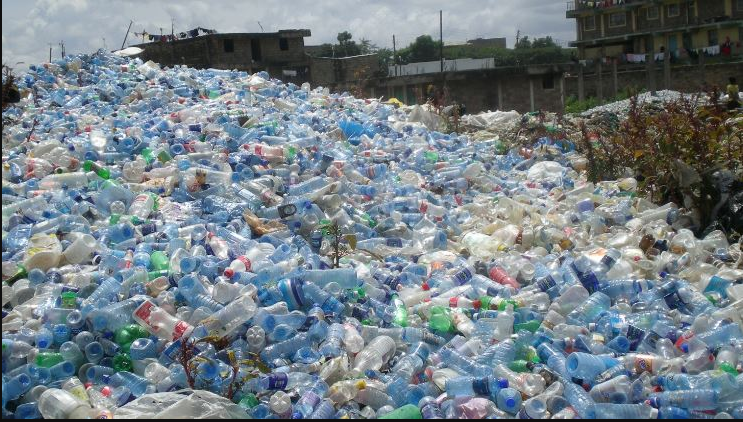
Our Projects are
Transforming African Trade
Quick Contacts
2nd Floor, Fidelity Insurance Centre Waiyaki Way, Westlands

The Kenya Plastics Pact has published a roadmap to ensure all plastic packaging in the country is recyclable or reusable by 2030.
More than 30 business members and supporters of the Kenya Plastics Pact, with representatives from every stage of the plastics packaging supply chain, have signed and endorsed the Roadmap.
They include plastic packaging manufacturers, prominent FMCG brands, committed small and medium businesses, informal waste pickers’ associations and recyclers, influential industry associations, environmental NGOs, advocacy groups/civil society, and the national government, as well as the national government through the Ministry of Environment and Forestry.
The Kenya Plastics Pact Roadmap reflects a powerful voice for tangible change by 2030 and will guide and mobilize the industry to tackle plastic pollution by taking collective action. The Roadmap activities are elaborate and based on Kenya’s context and the current situation in the country in terms of waste management, plastic pollution, the economy, the policy landscape, and available infrastructure,” Pact’s Secretariat Lead Karin Boomsma said.
Kenya’s daily plastic consumption is estimated to be 0.03 kg per person. Available data shows that the full amount of plastic that becomes waste in Kenya is approximately 0.5 to 1.3 million tonnes per year. Out of this, only 8% is recycled, with the remainder being landfilled or incinerated – or in the worst-case scenario, ending up in the environment. This is why plastic waste and pollution have particularly captured the attention of businesses, governments, and citizens in Kenya.
According to KEPSA CEO Ms Carole Kariuki, a radical transformation in how we use natural resources is central to meeting the needs of future generations.
“There is no question about it, the world needs a new economy; a circular economy, which keeps plastics in use and out of the environment. It is now more relevant than ever to bring the whole value chain together, and build collective solutions adapted to our reality.”
The Roadmap establishes four strategic targets for 2030, which includes; Eliminate unnecessary or problematic single-use plastic packaging items through redesign, innovation, and reuse delivery models, Ensure 100% of plastic packaging is reusable or recyclable, ensure 40 % of plastic packaging is effectively recycled, and ensure 15% average recycled content across all plastic packaging.
“This is a shared action plan that shows a cross-sectoral plan of outcomes and activities which when achieved, will stimulate industry-led innovation, dialogue, and collaboration to create new business models with product redesign in mind, generate job opportunities in the plastics collection and recycling sector, and position businesses competitively with improved economic, environmental, and societal outcomes overall,” Director of Environmental Education and Awareness in the Ministry of Environment and Forestry Dr Ayub Macharia said.
An enabling ecosystem, implementable guidelines, shared knowledge on material choices and improved reuse and recycling infrastructure and capacity are among the activities to drive the success of the EPR that will lead to achieving targets 2, 3 and 4.
“The Kenya Plastics Pact Roadmap is a landmark demonstration of how the plastics packaging value chain stakeholders both locally in Kenya & globally across other Plastics Pacts can come together to make real commitments towards achieving circular packaging through innovation, collaboration and action,” KEPRO Board Chair Akshay Shah emphasized.
WRAP CEO Marcus Gover said, “WRAP is delighted to have supported the Kenya Plastics Pact in the development of the Roadmap to 2030 which will mobilise not just the Pact’s signatories but also the wider plastics industry in Kenya to tackle the plastic pollution crisis. The UK Plastics Pact Roadmap launched almost 4 years ago and has helped transform the plastics value chain in the UK – we hope the same will be true in Kenya.’’
The development and implementation of the Kenya Plastics Pact are led by Sustainable Inclusive Business Kenya (SIB-K), the Secretariat to the Pact and the Knowledge Center under the Kenya Private Sector Alliance (KEPSA); with support from WRAP – the UK-based global environmental NGO, and initially funded by MAVA Foundation and UK Research and Innovation (UKRI).
The Pact is part of the Ellen MacArthur Foundation’s Plastics Pact Network and is the second in Africa after the South African Plastics Pact.
Read original article
Disclaimer: The views and opinions expressed in this article are those of the authors and do not necessarily reflect the official policy or position of TradeMark Africa.